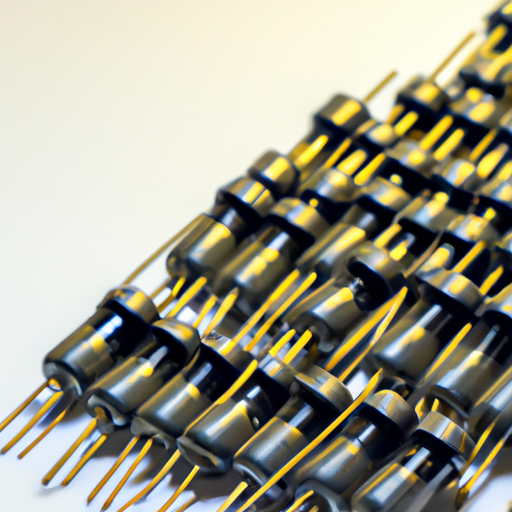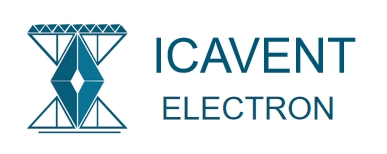What are the Advantages of Capacitor Computing Products?

I. Introduction
In the rapidly evolving landscape of technology, capacitor computing products are emerging as a pivotal component in enhancing the efficiency and performance of modern computing systems. Capacitors, fundamental electronic components that store and release electrical energy, are increasingly being integrated into various computing applications. This article aims to explore the advantages of capacitor computing products, shedding light on their significance in the quest for more efficient, reliable, and compact computing solutions.
II. Understanding Capacitor Computing
A. Explanation of Capacitor Technology
At its core, a capacitor is a device that stores electrical energy in an electric field, created by a pair of conductive plates separated by an insulating material known as a dielectric. When voltage is applied, the capacitor charges, and when the circuit requires energy, it discharges. This basic principle underpins the functionality of capacitors in various applications, including computing.
There are several types of capacitors used in computing, including ceramic, electrolytic, tantalum, and film capacitors. Each type has its unique properties, making them suitable for different applications within computing systems.
B. The Role of Capacitors in Modern Computing Systems
Capacitors play a crucial role in modern computing systems, primarily in energy storage and management. They help stabilize voltage and power supply, ensuring that components receive a consistent energy flow. Additionally, capacitors are essential in signal processing and filtering, allowing for the smooth operation of circuits by reducing noise and ensuring signal integrity.
III. Advantages of Capacitor Computing Products
A. Enhanced Energy Efficiency
One of the most significant advantages of capacitor computing products is their enhanced energy efficiency. Compared to traditional computing technologies, capacitors can store and release energy more effectively, leading to reduced power consumption. This efficiency is particularly important in an era where energy costs are rising, and sustainability is a priority. By minimizing energy waste, capacitor technology contributes to greener computing solutions.
B. Improved Performance
Capacitor computing products also offer improved performance, particularly in terms of data processing capabilities. Capacitors can facilitate faster data access and processing speeds, which is crucial for applications that require real-time data handling, such as gaming, video editing, and scientific simulations. Additionally, the reduced latency in data access ensures that systems can respond more quickly to user inputs, enhancing the overall user experience.
C. Increased Reliability and Longevity
Reliability is a critical factor in computing, and capacitor technology excels in this area. Capacitors are generally more durable than other electronic components, with a longer lifespan and greater resistance to environmental factors such as temperature fluctuations and humidity. This durability translates to fewer failures and lower maintenance costs, making capacitor computing products a reliable choice for both consumers and businesses.
D. Miniaturization and Space Efficiency
As technology advances, the demand for smaller and more compact devices continues to grow. Capacitor computing products contribute to this trend by enabling miniaturization and space efficiency. Their smaller form factors allow for the integration of capacitors into compact computing systems, such as smartphones, tablets, and wearables. This space-saving capability is essential for manufacturers looking to create sleek, portable devices without compromising performance.
E. Versatility and Adaptability
Capacitor computing products are versatile and adaptable, making them suitable for a wide range of applications across various industries. From consumer electronics to industrial automation, capacitors can be tailored to meet specific needs. Furthermore, they are compatible with existing technologies, allowing for seamless integration into current systems without requiring significant redesigns.
F. Cost-Effectiveness
In addition to their performance and reliability, capacitor computing products can be cost-effective in the long run. While the initial investment may vary, the long-term savings on energy consumption and maintenance can offset these costs. Additionally, advancements in manufacturing processes may lead to lower production costs, making capacitor technology an economically viable option for businesses and consumers alike.
IV. Case Studies and Real-World Applications
A. Capacitor Computing in Consumer Electronics
Capacitor computing products have made significant strides in consumer electronics. For instance, smartphones and tablets utilize capacitors to manage power efficiently, ensuring longer battery life and improved performance. Similarly, laptops and desktops benefit from capacitor technology, which enhances processing speeds and reduces energy consumption, making them more efficient for everyday tasks.
B. Industrial Applications
In industrial settings, capacitor computing products play a vital role in automation and robotics. Capacitors are used in control systems to ensure stable power supply and quick response times, which are essential for the smooth operation of machinery. Additionally, in renewable energy systems, capacitors help manage energy storage and distribution, contributing to the efficiency of solar and wind power systems.
C. Research and Development
Capacitor technology is also making waves in research and development, particularly in fields like artificial intelligence (AI) and machine learning. High-performance computing environments rely on capacitors to handle vast amounts of data quickly and efficiently. As researchers push the boundaries of technology, capacitor computing products will continue to play a crucial role in driving innovation.
V. Challenges and Considerations
A. Limitations of Capacitor Technology
Despite their many advantages, capacitor technology does have limitations. One significant concern is energy density; while capacitors can discharge energy quickly, they typically store less energy than batteries. This limitation can be a drawback in applications requiring long-term energy storage. Additionally, capacitors can be sensitive to temperature changes, which may affect their performance in extreme conditions.
B. Future Developments and Innovations
The future of capacitor technology is promising, with ongoing research aimed at overcoming current limitations. Innovations in materials science and engineering may lead to breakthroughs in energy density and temperature stability, expanding the potential applications of capacitor computing products. As these advancements unfold, we can expect to see even more integration of capacitors in computing systems.
VI. Conclusion
In summary, capacitor computing products offer numerous advantages, including enhanced energy efficiency, improved performance, increased reliability, miniaturization, versatility, and cost-effectiveness. As technology continues to evolve, the importance of capacitor technology in computing will only grow. Embracing capacitor computing is essential for developing sustainable and efficient technology solutions that meet the demands of the future.
VII. References
For further reading on capacitor technology and its applications in computing, consider exploring the following resources:
1. "Capacitor Technology: A Comprehensive Overview" - Journal of Electronic Materials
2. "The Role of Capacitors in Modern Electronics" - IEEE Transactions on Industrial Electronics
3. "Advancements in Capacitor Technology for Energy Storage" - Renewable Energy Journal
4. "Capacitors in Computing: A Review" - International Journal of Computer Applications
By understanding the advantages and potential of capacitor computing products, we can better appreciate their role in shaping the future of technology.
What are the Advantages of Capacitor Computing Products?

I. Introduction
In the rapidly evolving landscape of technology, capacitor computing products are emerging as a pivotal component in enhancing the efficiency and performance of modern computing systems. Capacitors, fundamental electronic components that store and release electrical energy, are increasingly being integrated into various computing applications. This article aims to explore the advantages of capacitor computing products, shedding light on their significance in the quest for more efficient, reliable, and compact computing solutions.
II. Understanding Capacitor Computing
A. Explanation of Capacitor Technology
At its core, a capacitor is a device that stores electrical energy in an electric field, created by a pair of conductive plates separated by an insulating material known as a dielectric. When voltage is applied, the capacitor charges, and when the circuit requires energy, it discharges. This basic principle underpins the functionality of capacitors in various applications, including computing.
There are several types of capacitors used in computing, including ceramic, electrolytic, tantalum, and film capacitors. Each type has its unique properties, making them suitable for different applications within computing systems.
B. The Role of Capacitors in Modern Computing Systems
Capacitors play a crucial role in modern computing systems, primarily in energy storage and management. They help stabilize voltage and power supply, ensuring that components receive a consistent energy flow. Additionally, capacitors are essential in signal processing and filtering, allowing for the smooth operation of circuits by reducing noise and ensuring signal integrity.
III. Advantages of Capacitor Computing Products
A. Enhanced Energy Efficiency
One of the most significant advantages of capacitor computing products is their enhanced energy efficiency. Compared to traditional computing technologies, capacitors can store and release energy more effectively, leading to reduced power consumption. This efficiency is particularly important in an era where energy costs are rising, and sustainability is a priority. By minimizing energy waste, capacitor technology contributes to greener computing solutions.
B. Improved Performance
Capacitor computing products also offer improved performance, particularly in terms of data processing capabilities. Capacitors can facilitate faster data access and processing speeds, which is crucial for applications that require real-time data handling, such as gaming, video editing, and scientific simulations. Additionally, the reduced latency in data access ensures that systems can respond more quickly to user inputs, enhancing the overall user experience.
C. Increased Reliability and Longevity
Reliability is a critical factor in computing, and capacitor technology excels in this area. Capacitors are generally more durable than other electronic components, with a longer lifespan and greater resistance to environmental factors such as temperature fluctuations and humidity. This durability translates to fewer failures and lower maintenance costs, making capacitor computing products a reliable choice for both consumers and businesses.
D. Miniaturization and Space Efficiency
As technology advances, the demand for smaller and more compact devices continues to grow. Capacitor computing products contribute to this trend by enabling miniaturization and space efficiency. Their smaller form factors allow for the integration of capacitors into compact computing systems, such as smartphones, tablets, and wearables. This space-saving capability is essential for manufacturers looking to create sleek, portable devices without compromising performance.
E. Versatility and Adaptability
Capacitor computing products are versatile and adaptable, making them suitable for a wide range of applications across various industries. From consumer electronics to industrial automation, capacitors can be tailored to meet specific needs. Furthermore, they are compatible with existing technologies, allowing for seamless integration into current systems without requiring significant redesigns.
F. Cost-Effectiveness
In addition to their performance and reliability, capacitor computing products can be cost-effective in the long run. While the initial investment may vary, the long-term savings on energy consumption and maintenance can offset these costs. Additionally, advancements in manufacturing processes may lead to lower production costs, making capacitor technology an economically viable option for businesses and consumers alike.
IV. Case Studies and Real-World Applications
A. Capacitor Computing in Consumer Electronics
Capacitor computing products have made significant strides in consumer electronics. For instance, smartphones and tablets utilize capacitors to manage power efficiently, ensuring longer battery life and improved performance. Similarly, laptops and desktops benefit from capacitor technology, which enhances processing speeds and reduces energy consumption, making them more efficient for everyday tasks.
B. Industrial Applications
In industrial settings, capacitor computing products play a vital role in automation and robotics. Capacitors are used in control systems to ensure stable power supply and quick response times, which are essential for the smooth operation of machinery. Additionally, in renewable energy systems, capacitors help manage energy storage and distribution, contributing to the efficiency of solar and wind power systems.
C. Research and Development
Capacitor technology is also making waves in research and development, particularly in fields like artificial intelligence (AI) and machine learning. High-performance computing environments rely on capacitors to handle vast amounts of data quickly and efficiently. As researchers push the boundaries of technology, capacitor computing products will continue to play a crucial role in driving innovation.
V. Challenges and Considerations
A. Limitations of Capacitor Technology
Despite their many advantages, capacitor technology does have limitations. One significant concern is energy density; while capacitors can discharge energy quickly, they typically store less energy than batteries. This limitation can be a drawback in applications requiring long-term energy storage. Additionally, capacitors can be sensitive to temperature changes, which may affect their performance in extreme conditions.
B. Future Developments and Innovations
The future of capacitor technology is promising, with ongoing research aimed at overcoming current limitations. Innovations in materials science and engineering may lead to breakthroughs in energy density and temperature stability, expanding the potential applications of capacitor computing products. As these advancements unfold, we can expect to see even more integration of capacitors in computing systems.
VI. Conclusion
In summary, capacitor computing products offer numerous advantages, including enhanced energy efficiency, improved performance, increased reliability, miniaturization, versatility, and cost-effectiveness. As technology continues to evolve, the importance of capacitor technology in computing will only grow. Embracing capacitor computing is essential for developing sustainable and efficient technology solutions that meet the demands of the future.
VII. References
For further reading on capacitor technology and its applications in computing, consider exploring the following resources:
1. "Capacitor Technology: A Comprehensive Overview" - Journal of Electronic Materials
2. "The Role of Capacitors in Modern Electronics" - IEEE Transactions on Industrial Electronics
3. "Advancements in Capacitor Technology for Energy Storage" - Renewable Energy Journal
4. "Capacitors in Computing: A Review" - International Journal of Computer Applications
By understanding the advantages and potential of capacitor computing products, we can better appreciate their role in shaping the future of technology.













